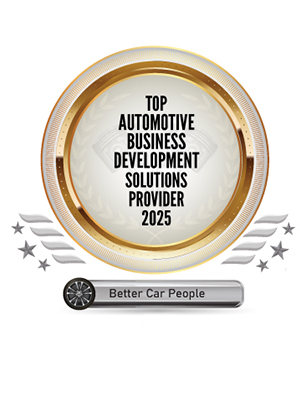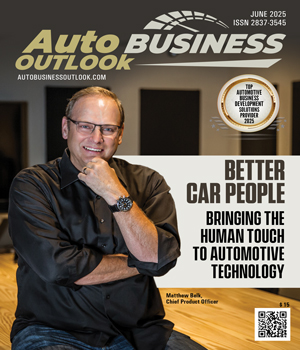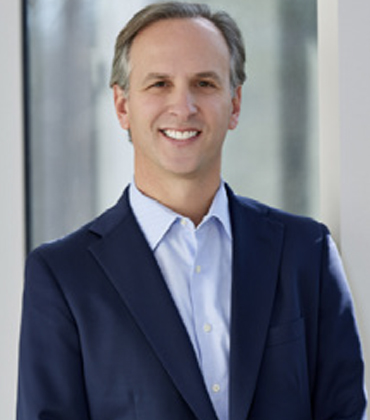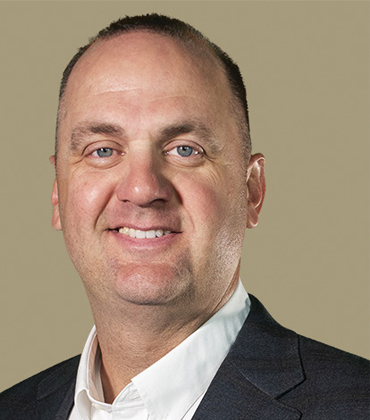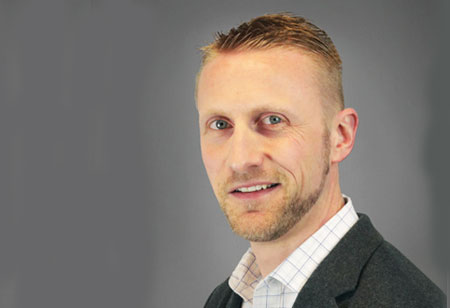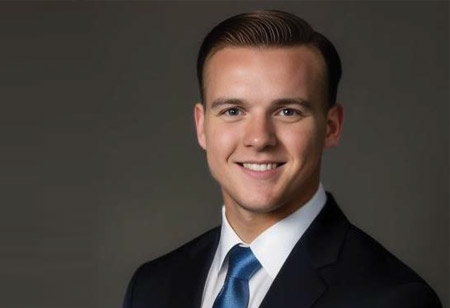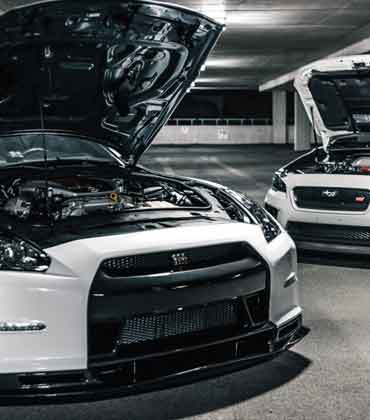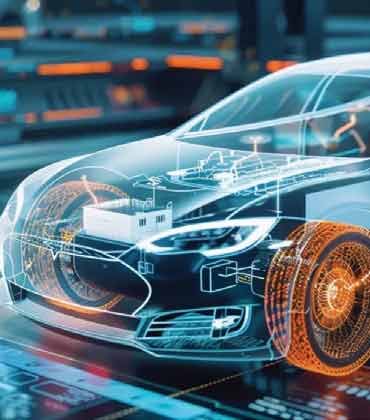Thank you for Subscribing to Auto Business Outlook Weekly Brief
Auto Business Outlook: Specials Magazine
If you’ve been in the automotive industry for any length of time, you already know how challenging it is to keep up with customer expectations. The modern customer wants fast, seamless interactions, whether they’re shopping for a car, scheduling a service appointment, or simply looking for information. The problem, however, is that most dealerships don’t have the manpower to respond instantly to every lead, answer every phone call, and meet the growing demand for fast, effective customer service. That’s where Better Car People comes in. Since its founding in 2010, Better Car People has been dedicated to helping dealerships connect with customers in a way that is both efficient and professional. But what truly sets the company apart is that it doesn’t rely solely on automation or artificial intelligence. Instead, Better Car People focuses on blending advanced technology with real human intelligence to create an experience that feels personal and engaging. Recently, Better Car People took a major step forward with the acquisition of Proactive Dealer Solutions, a company with over 30 years of experience in automotive sales and service training. This move signals a new era for Better Car People, as it now has the resources and expertise to provide dealerships with a level of service that goes beyond simple automation. By combining cutting-edge AI, highly efficient automation, and trained human agents, the company has built a system that helps dealerships capture more leads, schedule more service appointments, and increase overall sales without placing additional burdens on their staff. “We are addressing one of the most significant pain points in the industry today: the challenge of responding to customer inquiries quickly and effectively,” says Syl Raymond, Chief Strategy Officer of Better Car People. “In an environment where slow response times can mean lost sales, having a solution that guarantees fast and high-quality engagement is a game changer.” Meeting Customer Expectations in a 24/7 Digital World Running a dealership today is far more complicated than it was even a decade ago. With the rise of digital communication, customer expectations have evolved dramatically. No longer do people wait patiently for a callback or assume that a delay in response is normal. Instead, they expect immediate engagement, whether it’s through email, text, or phone calls.
Automotive Replacement Part Services 2025
Genuine Parts Company (GPC) is one of those rare businesses that touches everyday life without most people ever noticing. With operations in 17 countries, over 10,700 locations and an inventory that spans millions of replacement parts, GPC powers the essential systems that keep the modern world running—vehicles on the road, factories in motion and supply chains moving. Founded in 1928 and headquartered in Atlanta, Georgia, GPC has grown into a global leader in the distribution of automotive and industrial parts. Through trusted brands like NAPA Auto Parts, Motion, Alliance Automotive Group and Repco, the company serves a vast and diverse customer base, including repair shops, industrial plants, fleet operators, manufacturers and even everyday consumers. Yet GPC’s value goes far beyond logistics. It plays a fundamental role in solving a persistent challenge: keeping critical systems operational with speed, precision and reliability. At the heart of GPC’s business is a dual-market strategy. Its operations are split into two primary divisions—automotive and industrial—each with its own product lines, technical requirements and customer demands. The Automotive Parts Group supports independent repair shops, dealerships, fleet maintenance operators and DIY customers. GPC’s flagship brand, NAPA Auto Parts, is a familiar name across North America, known for quality, technical expertise and availability. Similar market-leading brands serve Europe and Australasia under the GPC umbrella, offering everything from brake systems and filters to specialized tools and diagnostics equipment.
Alternative Aftermarket Company 2025
Across the world’s roads, cars get scratched, dented or worn with time. Some meet a rough end, others a gentle fade into disuse. But for LKQ, each of these vehicles carries untapped potential. What many see as the end of the road, LKQ sees as a beginning. LKQ—short for Like Kind and Quality—is much more than a name. It is a promise, a mission to breathe new life into the automotive world by providing dependable, affordable auto parts that match the performance of original equipment. Since its founding, the company has grown into a global leader in the automotive aftermarket industry, supplying a wide range of replacement vehicle parts to professional repair shops, insurance companies, fleet operators and everyday drivers. Whether a car needs a new bumper after an accident, a remanufactured engine to extend its life or a recycled side mirror to cut repair costs, LKQ delivers. Through a smart blend of recycled, remanufactured and aftermarket parts, it helps customers fix vehicles efficiently, affordably and sustainably. What really makes LKQ different is its hybrid model, offering recycled parts pulled from end-of-life vehicles, remanufactured parts rebuilt to perform like new and aftermarket parts made by trusted third-party manufacturers. This mix gives customers, whether they are professional mechanics, insurance adjusters or DIY weekend fixers, more choices depending on their needs and budget. It is a smart, flexible way to fix vehicles without being locked into expensive, brand-new original equipment manufacturer (OEM) parts. A key piece of LKQ’s success is its strong partnership with the insurance industry. When drivers get into accidents and file claims, insurance companies are responsible for covering repair costs. That is where LKQ steps in as a cost and timesaving ally. Insurers turn to LKQ to source quality alternative parts that meet performance and safety standards but come at a fraction of the OEM price. That helps keep repair costs under control and insurance premiums more affordable for everyone. Many insurance companies even integrate LKQ into their Direct Repair Programs (DRP), streamlining approvals and making the repair process seamless for policyholders. And with LKQ’s strong focus on quality and compliance, insurers know they can rely on every part to meet rigorous standards, which is critical from both a customer satisfaction and liability standpoint. When a car truly reaches the end of the road, LKQ’s green mission kicks into high gear. At its full-service salvage yards, these vehicles are carefully dismantled, fluids like oil and gas are drained safely, hazardous items like batteries and airbags are removed with care and reusable parts are pulled out, inspected and tested before being sent off to repair shops or customers. The leftover metal and materials get recycled to be made into new things, cutting down waste and pollution. This “recover, refurbish, and resell” cycle is what drives LKQ’s mission to protect the planet while keeping cars moving.
CXO INSIGHTS

Evolutions in the Auto Tech Industry
Nick Rumberger, Executive Director, Engineering & Sales, BILSTEIN
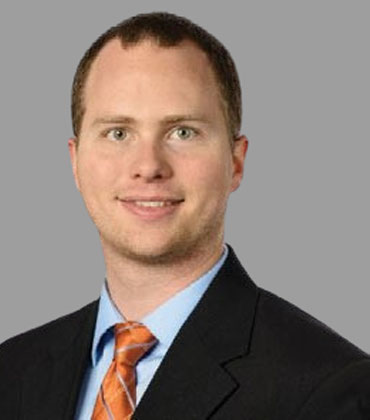
Leadership in Manufacturing
Michael Spliedt, Senior Engineering Manager, Yanfeng
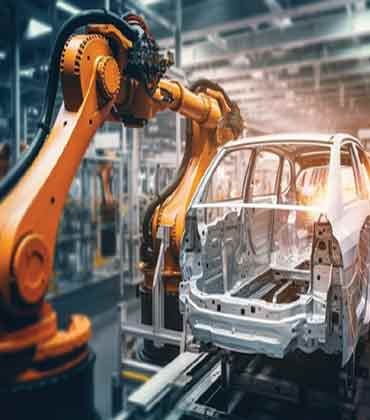
Reforming Conventional Practices in the Automotive Space
Reese Blalock, Director of Automotive Technical Education and Development, AAMCO Transmissions and Total Car Care
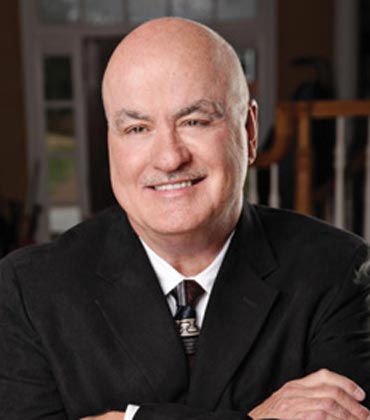
How to Make The Most of Your Process Failure Mode and Effects Analysis
Monte Heisler, Director, Manufacturing Quality, North American Stamping Group

Lean Manufacturing Excellence
Terrence H. Slaughter, Plant Production Manager, Toyota North America
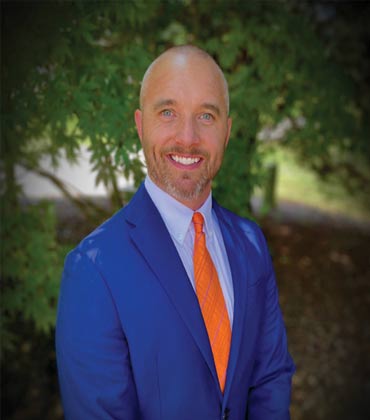
Aiming for an Energy-Efficient World
Trent Randles, Engineering Manager, BorgWarner [NYSE: BWA]
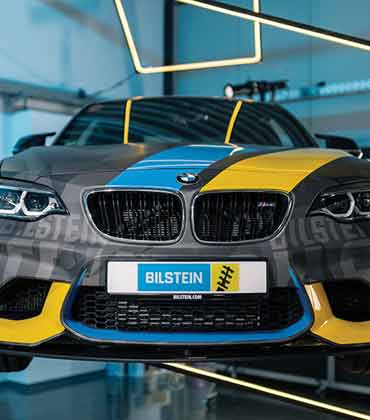
Larry Rosinski: Leading Data-Driven Connected Car Innovation
Larry Rosinski, Senior Manager Business Development and Analytics, Nissan Motor Corporation [Tokyo: 7201.T]
IN FOCUS
Driving Engagement: Effective Automotive Marketing Techniques
The automated workflows create a seamless and intelligent marketing experience, increasing conversion rates while saving time and resources.
EDITORIAL
Old Batteries, New Roads
As EVs continue to rise in popularity, the demand for critical battery materials like lithium, nickel, and cobalt is growing rapidly. To manage costs, stabilize supply chains, and reduce environmental impact, automakers and suppliers are rethinking the battery lifecycle and accelerating investments in recycling.
Unlike traditional gas-powered vehicles, EVs face a challenge when their batteries degrade. But what was once considered waste is now seen as a resource. Industry leaders are partnering with recycling specialists to recover valuable minerals from used batteries, easing reliance on volatile global mining markets and helping keep materials in circulation.
Companies like Redwood Materials and Li-Cycle are expanding domestic recycling operations, enabling recovery rates of more than 90 percent. At the same time, batteries that are no longer suitable for vehicles are finding second lives in grid storage systems and lowpower applications.
This momentum is being driven by more than just innovation. Across North America and Europe, governments are tightening regulations and encouraging sustainable practices. Automakers are responding by adopting closed-loop systems that improve traceability and reduce dependence on newly mined resources.
Consumers also stand to gain. As manufacturers find new ways to recycle and reuse materials, the cost of EVs is expected to come down. And with every battery that gets a second chance, the industry moves closer to a truly circular model—one where end-of-life batteries help power the road ahead.
In this edition, we feature insights from Aaron Shaffer, Director of Marketing Services, Standard Motor Products [NYSE: SMP], and Blake Ritter, Branded Products Segment Manager, Lincoln Industries. Together, they explore how supply chain resilience and sustainability are redefining competitive advantage in automotive manufacturing.


